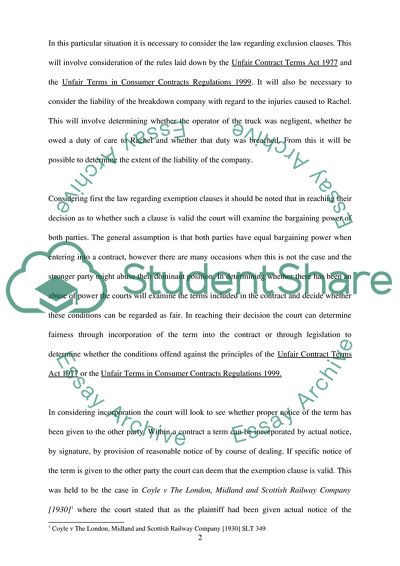Cite this document
(Law Scenario Assignment Example | Topics and Well Written Essays - 1250 words, n.d.)
Law Scenario Assignment Example | Topics and Well Written Essays - 1250 words. https://studentshare.org/law/1718253-law-of-contract-1-assignment
Law Scenario Assignment Example | Topics and Well Written Essays - 1250 words. https://studentshare.org/law/1718253-law-of-contract-1-assignment
(Law Scenario Assignment Example | Topics and Well Written Essays - 1250 Words)
Law Scenario Assignment Example | Topics and Well Written Essays - 1250 Words. https://studentshare.org/law/1718253-law-of-contract-1-assignment.
Law Scenario Assignment Example | Topics and Well Written Essays - 1250 Words. https://studentshare.org/law/1718253-law-of-contract-1-assignment.
“Law Scenario Assignment Example | Topics and Well Written Essays - 1250 Words”. https://studentshare.org/law/1718253-law-of-contract-1-assignment.


